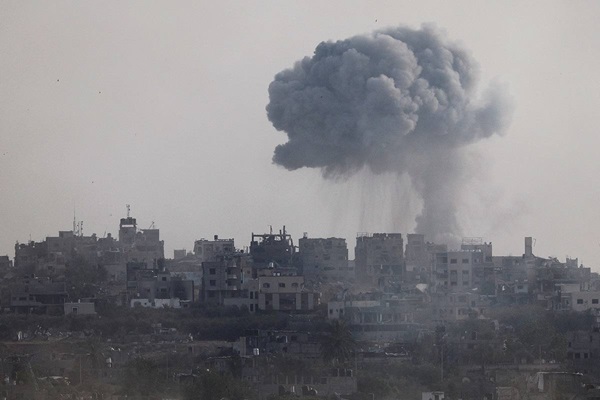Israel has confirmed the killing of two armed men, Qutaiba Shalabi and Mohammed Nazzal, who were suspected of carrying out a shooting attack that claimed the lives of three Israelis in the occupied West Bank earlier this month.
The two men were killed during a gun battle with Israeli forces on Wednesday night in Burqin, near Jenin in the northern West Bank.
According to the Palestinian health ministry, their bodies were taken by Israeli forces, and the building they were in was demolished.
Hamas has issued a statement claiming the men as their fighters.
Since Tuesday, Israel has been conducting a major military operation in and around Jenin.
During this operation, army vehicles have been controlling access to medical staff and ambulances at the main hospital, while also blocking access to the Jenin refugee camp, which is home to both civilians and armed Palestinian groups.
Twelve Palestinians, including Shalabi and Nazzal, have been reported killed during the operation, with dozens more injured.
Israel has stated that its goal is to dismantle the armed groups in the area, which are supported by Hamas and Palestinian Islamic Jihad, to prevent further attacks on Israeli targets.
The operation also reflects Israel’s concern about the West Bank potentially becoming a new base for Iranian influence and arms.
In addition to armed group members, some of the casualties in Jenin are believed to be civilians.
Among them was Ahmed al-Shayeb, a well-known mobile phone shop owner who was killed while driving near the Jenin refugee camp, accompanied by his 10-year-old son, Taym.
“They started shooting, and a bullet hit him,” Taym told reporters at his father’s funeral on Wednesday.
“He said ‘God, God,’ then the car hit the pavement. I saw two army vehicles coming toward us. They started to shoot towards the car, but I jumped out and ran away.”
Israel’s army says the incident is under review.
The roads into Jenin camp – some of them torn up by military bulldozers – are guarded by small groups of soldiers, who raised their weapons when we approached.
Fierce fighting was reported inside the camp on Tuesday night, and on Wednesday many residents were trying to leave.
One man told us residents were being separated by the army into groups of five, before being checked by a drone, and either arrested or allowed to leave.
We spotted a small group of adults and children picking their way past the soldiers, over broken earth and concrete, one man lifting his infant son high above his head.
He told us military bulldozers had reached the middle of the camp, and that he was worried the operation there was about to start in earnest.
“There are still a lot of people inside the camp – the elderly, sick, and kids,” he said. “They can’t leave. God help them.”
He said this raid felt different to the many others Israel has carried out since Hamas’s 7 October 2023 attack on Israel, which triggered the war in Gaza.
“It’s different this time – they’re striking everywhere. It’s like Gaza,” he said.
Next to him, 52-year-old Kefah Sehwal said she had lost 15 members of her family since then.
“After what happened to [Israeli forces] in Gaza, the reaction is here,” she told me. “They’re taking it out on us.”
Israel’s Defence Minister, Israel Katz, has talked about a “shift in strategy” for this operation, saying the lesson from Gaza is not just to “eliminate terrorists”, as he put it, but to stop them coming back.
That plan didn’t work in Gaza. It’s not clear it’ll work in Jenin.



